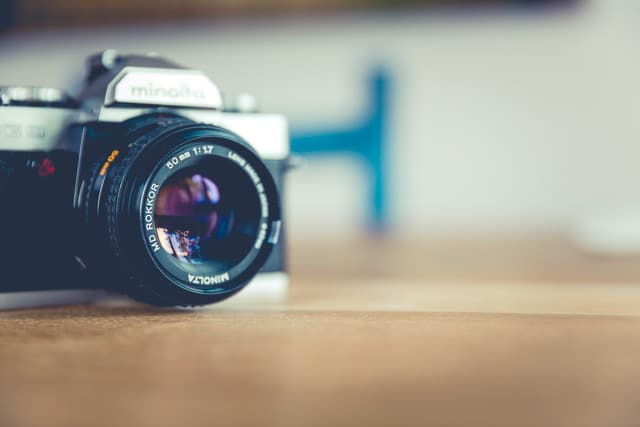Duke is always beautiful. But at twilight, it becomes magical. Still groggy from my afternoon nap, I grabbed my dad’s old 35mm film camera and made a beeline for the gardens. It was a perfect time to capture the overwhelming beauty of the campus in the gloaming. It was also an opportune moment for mindfulness.
The sun was setting fast and I felt rushed, but I pushed back on this tugging feeling and did my best to be fully engaged in the moment.
Pause. Point. Shoot.
Doing so made me slow down and pay gratitude to the enormous world around me, noticing the way I move through it. I allowed myself to become intensely absorbed in my body and its surroundings: the dull sting of cold air on my ears, the curious slowness of my hands from the chill, the suspended stillness of my breath each time I pushed down the shutter, the oddly pleasant grogginess I felt post-nap, the blissful warmth of the scarf around my neck, the way my camera strap found a bouncing rhythm as I walked.
These days, we all walk around with phone-calling cameras in our pockets and typically put a lot of value in taking the right picture. But with a film camera from the 80s, the outcome of each shutter remains a mystery until the film is developed weeks – if not months – later. Each time I captured a moment, I had no idea if the photo would actually be good. My little photoshoot was quickly becoming a lesson in being comfortable with being enough.
After the night chased away any remaining light, I turned my focus to the main quad and intended to photograph the chapel, as any self-respecting Blue Devil would. Our campus centerpiece shone starkly in the moonlight and I actually envisioned myself holding the forthcoming picture after printing, proud of what I had created. I moved in – close enough to see its tremendous detail, far enough to capture in its entirety – and found a stable spot. I took a deep breath and pushed the shutter. Nothing happened. I was out of the film.
I laughed at my mistake and walked home. At risk of reading too far into what had happened (a real knack of mine), I decided that the experience held a valuable lesson:
We never know when the film of our life will run out, so each day should be lived as if there is no guarantee of tomorrow.
Thanks for bearing with me through that cliché. God knows I don’t actually know the first thing about photography, but I am beginning to realize that it really is about the process, not the product. Focusing on being completely in the moment – relinquishing the uncertainty of tomorrow – seems to really help me and I intend to continue using my camera as a lens for mindfulness.
You can also read:
